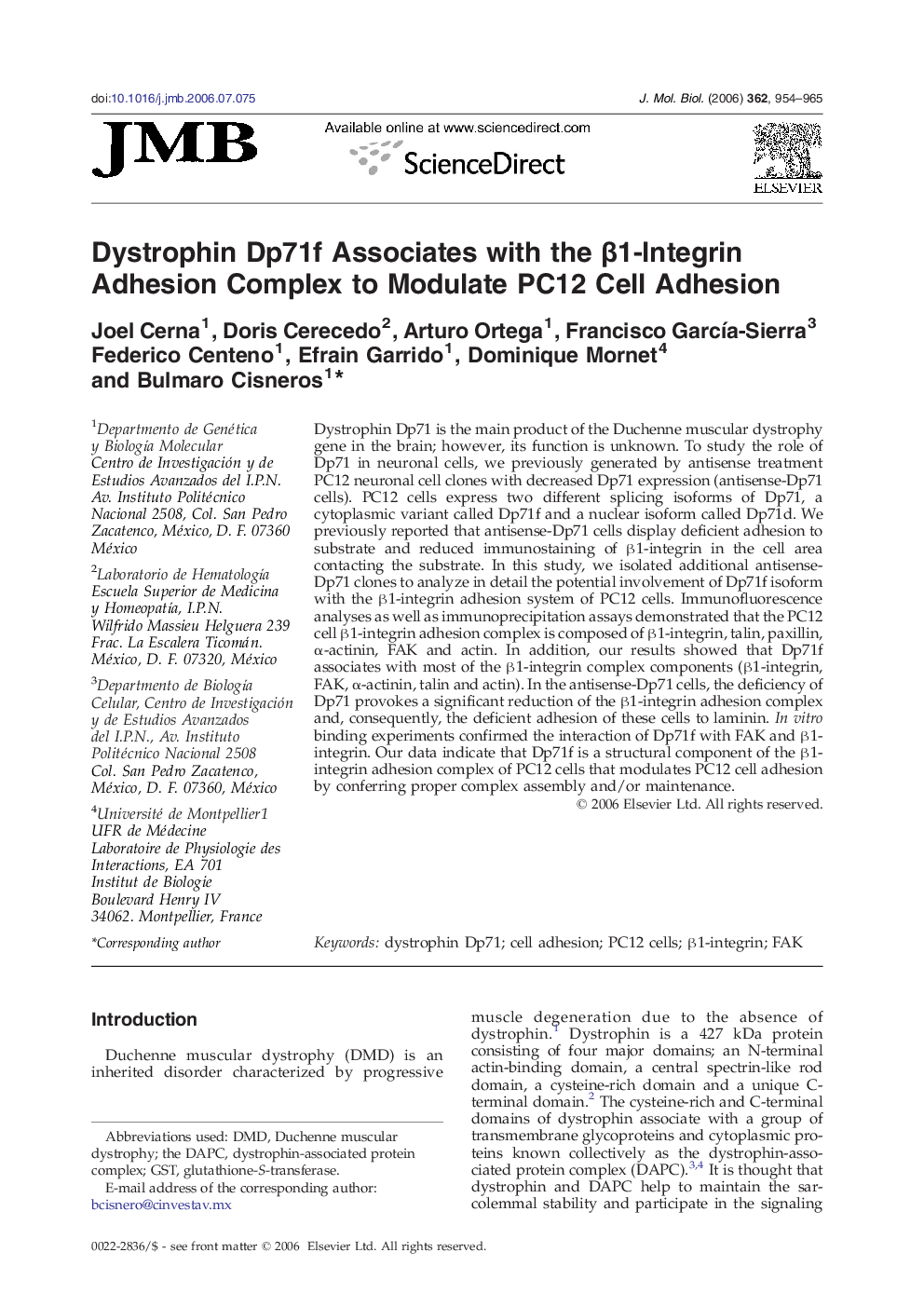| Article ID | Journal | Published Year | Pages | File Type |
|---|---|---|---|---|
| 2188858 | Journal of Molecular Biology | 2006 | 12 Pages |
Dystrophin Dp71 is the main product of the Duchenne muscular dystrophy gene in the brain; however, its function is unknown. To study the role of Dp71 in neuronal cells, we previously generated by antisense treatment PC12 neuronal cell clones with decreased Dp71 expression (antisense-Dp71 cells). PC12 cells express two different splicing isoforms of Dp71, a cytoplasmic variant called Dp71f and a nuclear isoform called Dp71d. We previously reported that antisense-Dp71 cells display deficient adhesion to substrate and reduced immunostaining of β1-integrin in the cell area contacting the substrate. In this study, we isolated additional antisense-Dp71 clones to analyze in detail the potential involvement of Dp71f isoform with the β1-integrin adhesion system of PC12 cells. Immunofluorescence analyses as well as immunoprecipitation assays demonstrated that the PC12 cell β1-integrin adhesion complex is composed of β1-integrin, talin, paxillin, α-actinin, FAK and actin. In addition, our results showed that Dp71f associates with most of the β1-integrin complex components (β1-integrin, FAK, α-actinin, talin and actin). In the antisense-Dp71 cells, the deficiency of Dp71 provokes a significant reduction of the β1-integrin adhesion complex and, consequently, the deficient adhesion of these cells to laminin. In vitro binding experiments confirmed the interaction of Dp71f with FAK and β1-integrin. Our data indicate that Dp71f is a structural component of the β1-integrin adhesion complex of PC12 cells that modulates PC12 cell adhesion by conferring proper complex assembly and/or maintenance.
